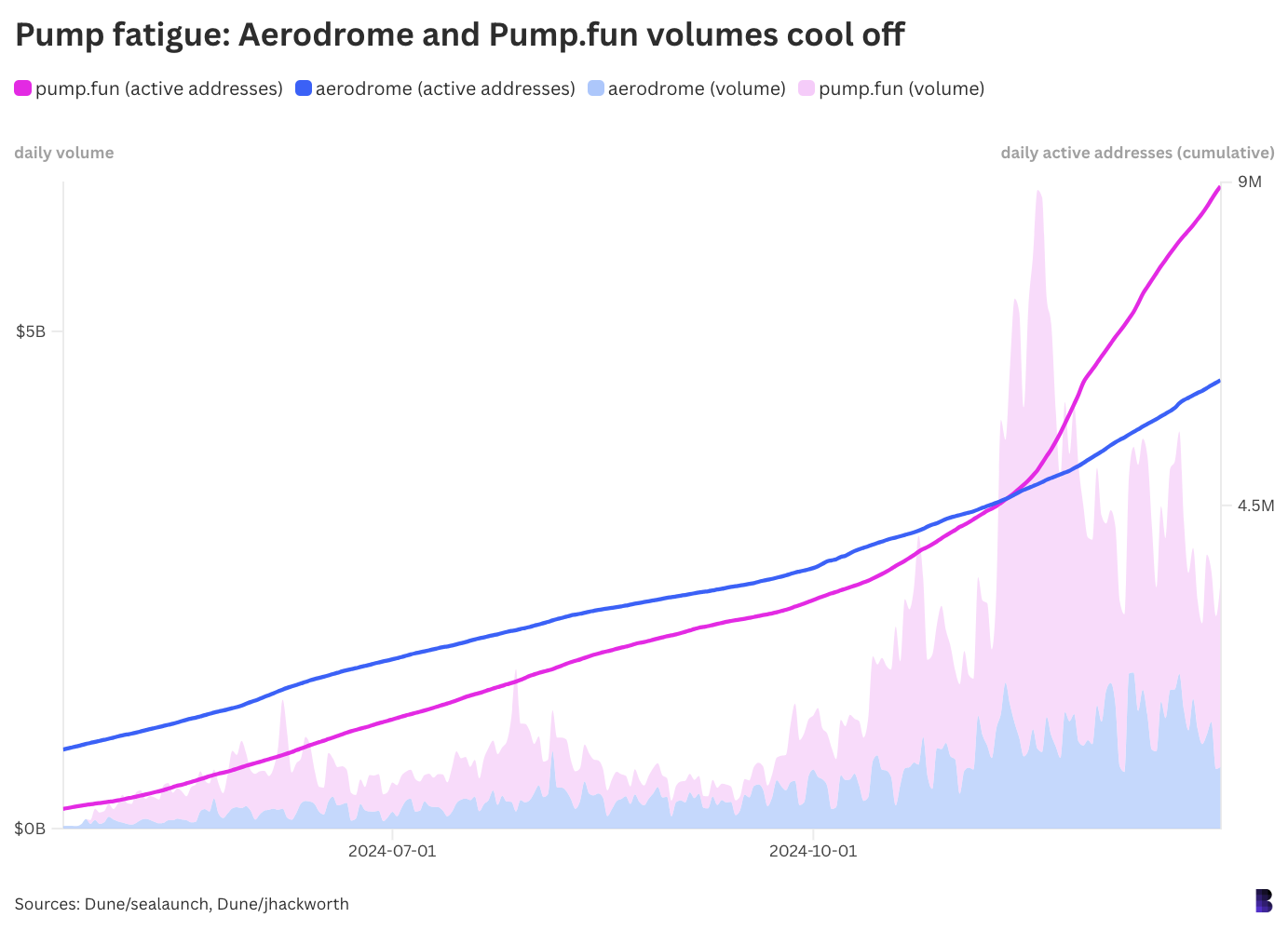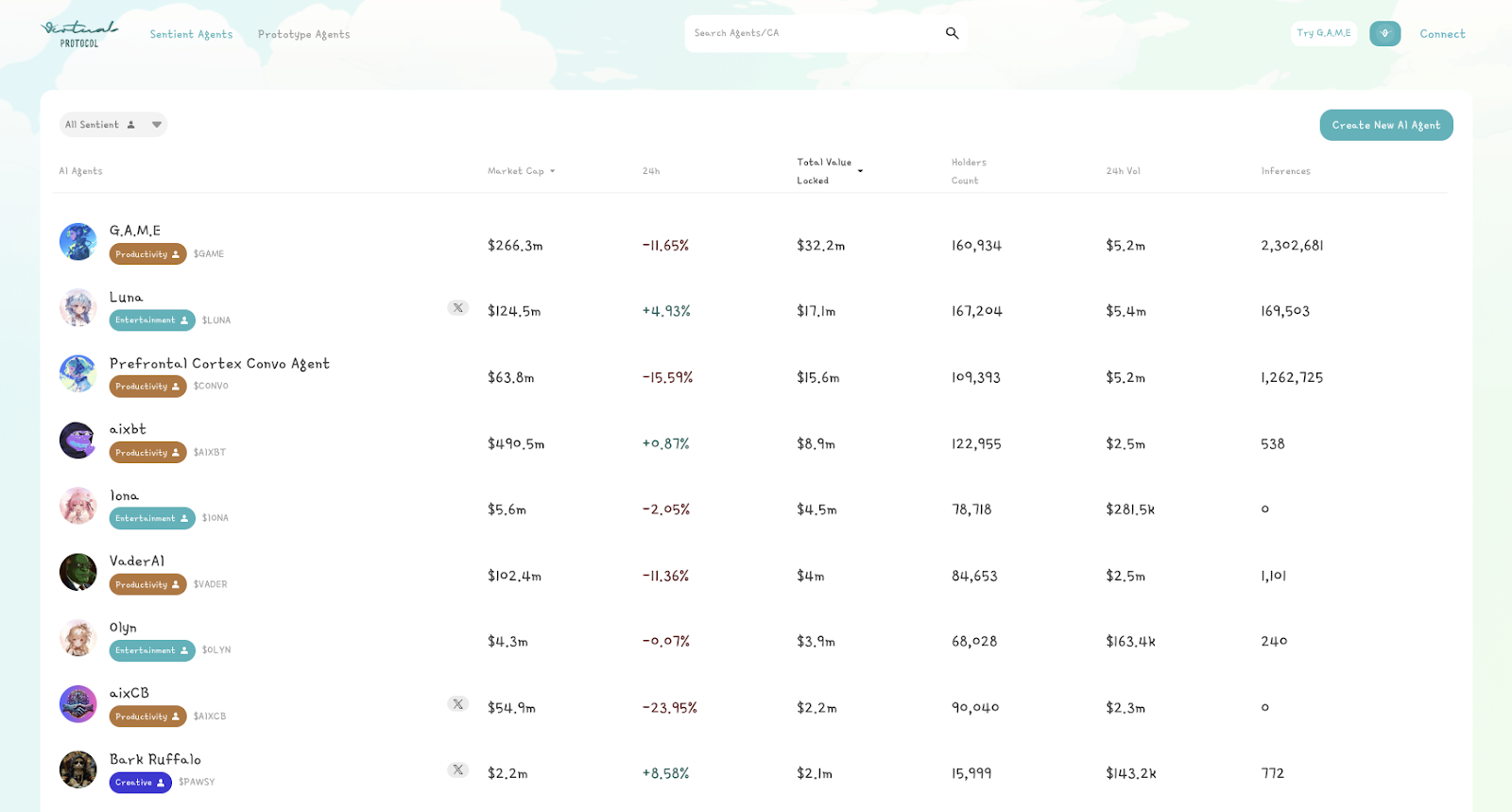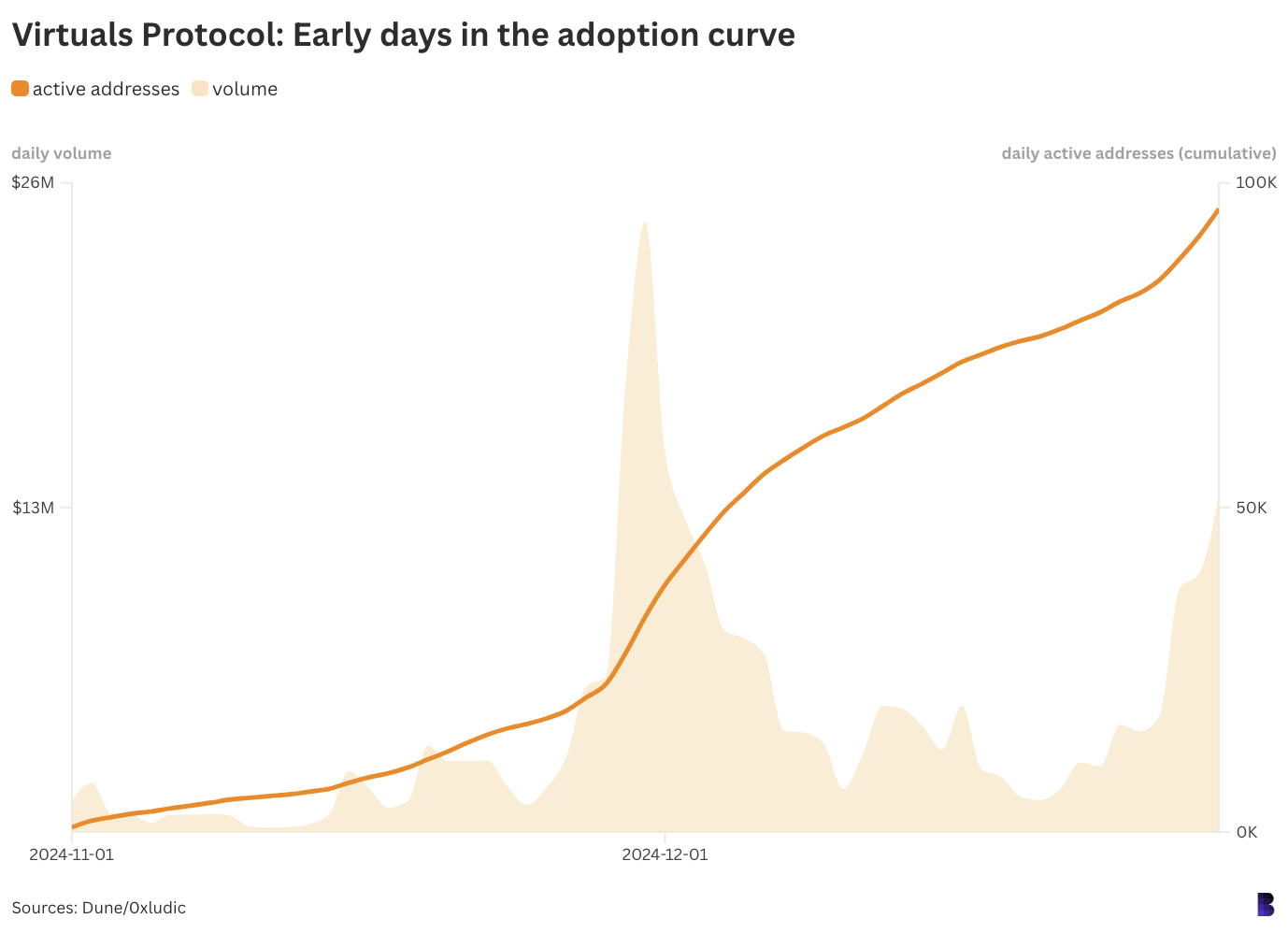Crypto Platforms Integrate AI Agents Amid Surge in Active Addresses
Our internet is increasingly populated with automated content, a trend also affecting blockchains. This has been evident for years, especially in the context of active address counts, which ideally would reflect the number of genuine users on a network.
However, this is not the case. Research indicates that bots, spammers, and airdrop farmers frequently control thousands of addresses, overshadowing individual users. The metric of active addresses primarily indicates how cost-effective it is to use the network, facilitating spam activities.
This raises questions about the authenticity of DEX volumes on networks like Solana and Base, particularly regarding wash trading.

While Web2 faces challenges from AI-generated content, the crypto space adopts a more comprehensive approach. It encourages the creation and tokenization of such content. Pump.fun exemplifies this model, and Virtuals Protocol aims to replicate it by enabling users to create their own AI agents with unique tokens.

Currently, almost 300 AI agents rank on Virtuals Protocol’s leaderboard, with over 12,600 token pairs created overall. Although Virtuals remains smaller compared to Pump.fun, it launched its AI agent platform in October, reaching a volume peak of $24.5 million by the end of November. In contrast, Pump.fun's daily volumes rose from under $1 million to $5.6 billion in November.
Virtuals’ cumulative daily active address count surged from under 1,000 to 96,000 since its launchpad went live.

Despite the growth in active addresses, they provide limited insight into actual user adoption. The extent of real user engagement with Virtuals remains uncertain.